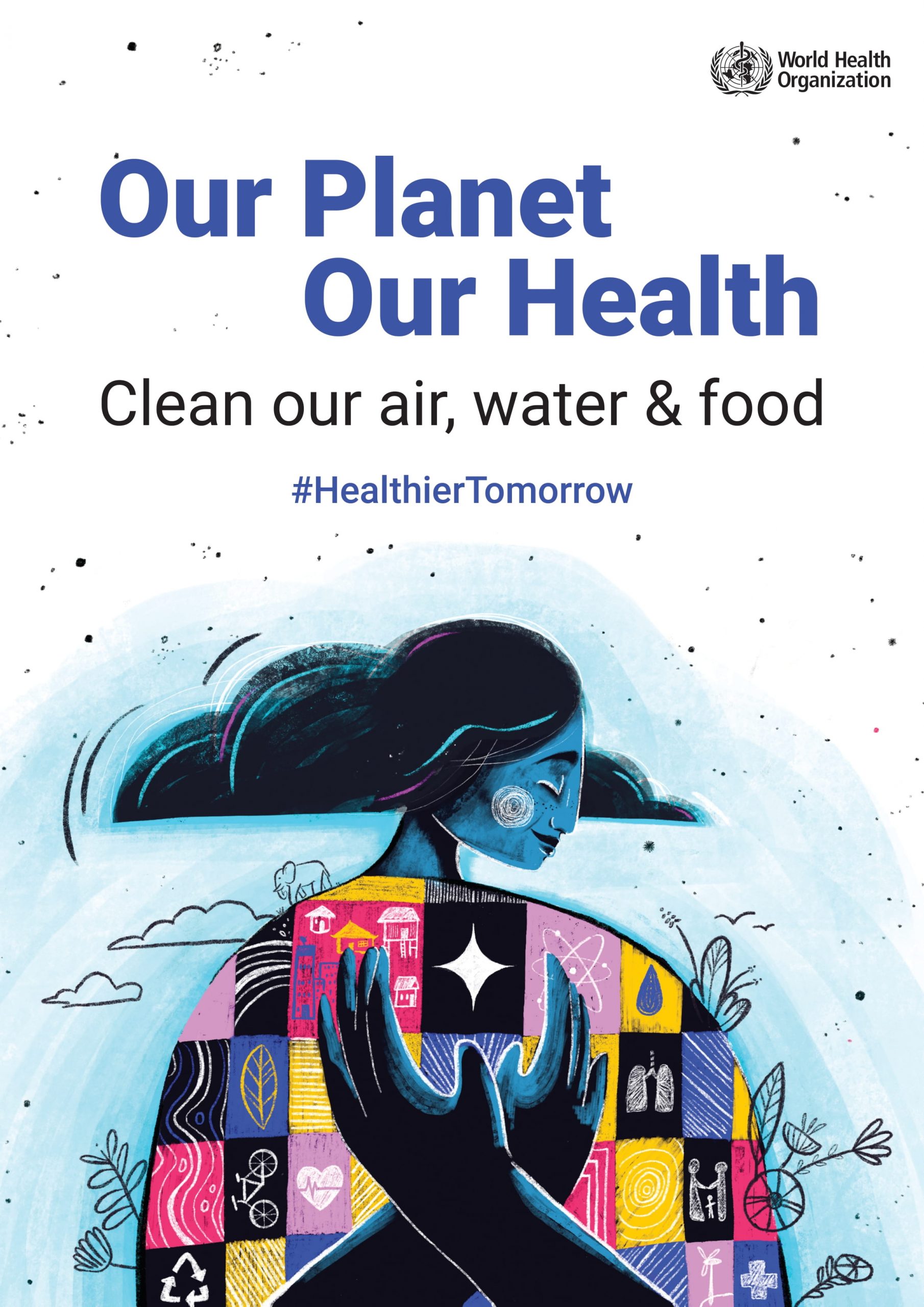By World Health Organization
Our health and the health of our planet are inextricably linked, and the need to focus on creating healthy societies on a healthy planet is becoming more and more apparent.
 The 2022 World Health Day theme centres on this link between the health of our planet and the health of humans, animals, plants – all living creatures. In line with the One Health approach, which emphasizes the interdependence of animal, human and environmental health, this year’s WHO campaign will promote messages and activities that showcase how individual choices and social behaviours impact our environment.
The 2022 World Health Day theme centres on this link between the health of our planet and the health of humans, animals, plants – all living creatures. In line with the One Health approach, which emphasizes the interdependence of animal, human and environmental health, this year’s WHO campaign will promote messages and activities that showcase how individual choices and social behaviours impact our environment.
While humans contribute to environmental degradation with unsustainable behavioural patterns, we can and must also be part of the solution when it comes to addressing the single biggest health threat that humanity faces – the climate crisis.
Everything is interconnected
Rising temperatures, floods and extreme rainfall are all ways in which climate change is impacting the lives of millions of people in the WHO European Region. At the same time, other human-caused health threats like air pollution, ecosystem degradation, and the production and consumption of tobacco are exacerbating the damage to our planet. These are themes that will be explored alongside the initiatives implemented in cities across the Region.
WHO is calling on everyone to reimagine a world where clean air, water and food are available to all, where economies are focused on planetary and human health and well-being, and where healthy, people-centred cities, villages and communities create conditions for people to lead better lives.
Need for action
In the midst of a pandemic, a polluted planet, increasing diseases like cancer, asthma, heart disease, on World Health Day 2022, WHO will focus global attention on urgent actions needed to keep humans and the planet healthy and foster a movement to create societies focused on well-being.
WHO estimates that more than 13 million deaths around the world each year are due to avoidable environmental causes. This includes the climate crisis which is the single biggest health threat facing humanity. The climate crisis is also a health crisis.
Making a difference
 Our political, social and commercial decisions are driving the climate and health crisis. Over 90% of people breathe unhealthy air resulting from burning of fossil fuels. A heating world is seeing mosquitos spread diseases farther and faster than ever before. Extreme weather events, land degradation and water scarcity are displacing people and affecting their health. Pollution and plastics are found at the bottom of our deepest oceans, the highest mountains, and have made their way into our food chain. Systems that produce highly processed, unhealthy foods and beverages are driving a wave of obesity, increasing cancer and heart disease while generating a third of global greenhouse gas emissions.
Our political, social and commercial decisions are driving the climate and health crisis. Over 90% of people breathe unhealthy air resulting from burning of fossil fuels. A heating world is seeing mosquitos spread diseases farther and faster than ever before. Extreme weather events, land degradation and water scarcity are displacing people and affecting their health. Pollution and plastics are found at the bottom of our deepest oceans, the highest mountains, and have made their way into our food chain. Systems that produce highly processed, unhealthy foods and beverages are driving a wave of obesity, increasing cancer and heart disease while generating a third of global greenhouse gas emissions.
While the COVID-19 pandemic showed us the healing power of science, it also highlighted the inequities in our world. The pandemic has revealed weaknesses in all areas of society and underlined the urgency of creating sustainable well-being societies committed to achieving equitable health now and for future generations without breaching ecological limits.
The present design of the economy leads to inequitable distribution of income, wealth and power, with too many people still living in poverty and instability. A well-being economy has human well-being, equity and ecological sustainability as its goals. These goals are translated into long-term investments, well-being budgets, social protection and legal and fiscal strategies. Breaking these cycles of destruction for the planet and human health requires legislative action, corporate reform and individuals to be supported and incentivized to make healthy choices.




